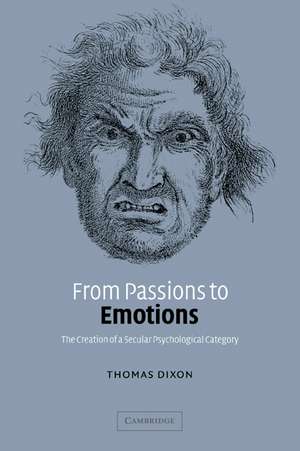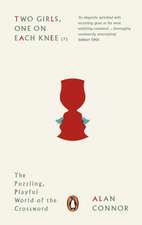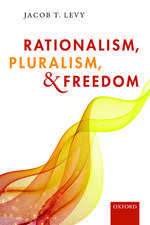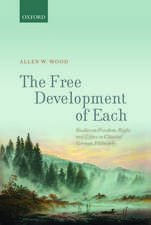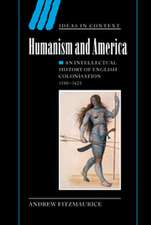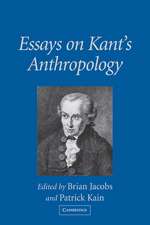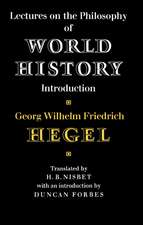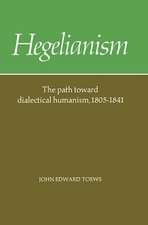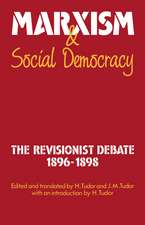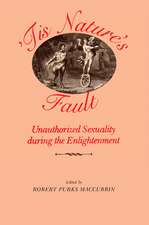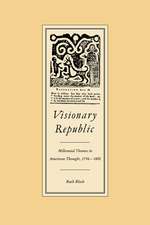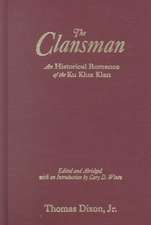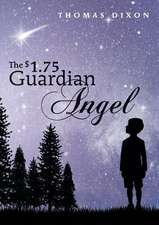From Passions to Emotions: The Creation of a Secular Psychological Category
Autor Thomas Dixonen Limba Engleză Paperback – 31 mai 2006
| Toate formatele și edițiile | Preț | Express |
|---|---|---|
| Paperback (1) | 177.91 lei 3-5 săpt. | +16.91 lei 6-12 zile |
| Cambridge University Press – 31 mai 2006 | 177.91 lei 3-5 săpt. | +16.91 lei 6-12 zile |
| Hardback (1) | 738.70 lei 6-8 săpt. | |
| Cambridge University Press – 4 iun 2003 | 738.70 lei 6-8 săpt. |
Preț: 177.91 lei
Nou
Puncte Express: 267
Preț estimativ în valută:
34.04€ • 35.47$ • 28.19£
34.04€ • 35.47$ • 28.19£
Carte disponibilă
Livrare economică 14-28 martie
Livrare express 27 februarie-05 martie pentru 26.90 lei
Preluare comenzi: 021 569.72.76
Specificații
ISBN-13: 9780521026697
ISBN-10: 0521026695
Pagini: 300
Ilustrații: black & white illustrations
Dimensiuni: 154 x 229 x 19 mm
Greutate: 0.44 kg
Editura: Cambridge University Press
Colecția Cambridge University Press
Locul publicării:Cambridge, United Kingdom
ISBN-10: 0521026695
Pagini: 300
Ilustrații: black & white illustrations
Dimensiuni: 154 x 229 x 19 mm
Greutate: 0.44 kg
Editura: Cambridge University Press
Colecția Cambridge University Press
Locul publicării:Cambridge, United Kingdom
Cuprins
Acknowledgments; 1. Introduction: from passions and affections to emotions; 2. Passions and affections in Augustine and Aquinas; 3. From movements to mechanisms: passions, sentiments and affections in the Age of Reason; 4. The Scottish creation of 'the emotions': David Hume, Thomas Brown, Thomas Chalmers; 5. The physicalist appropriation of Brownian emotions: Alexander Bain, Herbert Spencer, Charles Darwin; 6. Christian and theistic responses to the physicalist emotions paradigm; 7. What was an emotion in 1884? William James and his critics; 8. Conclusions: how history can help us think about 'the emotions'; Bibliography; Index.
Recenzii
'In sum, this is a deeply rewarding book, backed up by detailed scholarship; it deserves a place on the bookshelves of anyone concerned with the history both of passions and emotions.' History of Political Thought
'From Passions to Emotions will be consulted for a long time … not least because it is an important contribution to the history of several fields … Dixon has reduced the main issues to their essences, and one cannot imagine the task having been better accomplished by others.' History of Psychiatry
'In a series of closely argued and well-documented chapters, Dixon shows that this category had no equivalent in earlier discourse … Dixon clearly demonstrates that 'emotion' constitutes a specifically modern discursive construction rather than an analogue of some ancient psychological category …Dixon presents a superb analysis of the interrelationship between the historical fate of the will and the passions … Measured against the sharper, more differentiated analysis presented this book, the conventional understanding of 'emotion' begins to look like a very blunt instrument. Dixon's contribution is not 'merely' historical; it has considerable relevance for contemporary attempts to achieve a richer conceptualisation of affective life.' Journal of the History of the Behavioral Sciences
'From Passions to Emotions offers a cogent, and I think, convincing argument on an issue of crucial public interest. It is a piece of good old-fashioned intellectual history …'. Galton Institute Newsletter
'… a most significant and most interesting contribution both to the history of psychology and to the study of relations between the modern scientific world view and religion. … it will substantially alter how writers refer to the history of what we loosely call the 'feelings'. … There has been little systematic history of the 'emotions' before this book, and this book provides a new and firm reference point. … [there] is a much-needed seriousness about the centrality, complexity and subtlety of interrelations between religion and psychology. There is no doubt that ignorance, indifference or antagonism to religion has marked the history of this field. Here we now have a model study that shows what is involved in overcoming this limitation. … very valuable scholarship and persusasive clarity …' British Journal of the History of Science
'From Passions to Emotions will be consulted for a long time … not least because it is an important contribution to the history of several fields … Dixon has reduced the main issues to their essences, and one cannot imagine the task having been better accomplished by others.' History of Psychiatry
'In a series of closely argued and well-documented chapters, Dixon shows that this category had no equivalent in earlier discourse … Dixon clearly demonstrates that 'emotion' constitutes a specifically modern discursive construction rather than an analogue of some ancient psychological category …Dixon presents a superb analysis of the interrelationship between the historical fate of the will and the passions … Measured against the sharper, more differentiated analysis presented this book, the conventional understanding of 'emotion' begins to look like a very blunt instrument. Dixon's contribution is not 'merely' historical; it has considerable relevance for contemporary attempts to achieve a richer conceptualisation of affective life.' Journal of the History of the Behavioral Sciences
'From Passions to Emotions offers a cogent, and I think, convincing argument on an issue of crucial public interest. It is a piece of good old-fashioned intellectual history …'. Galton Institute Newsletter
'… a most significant and most interesting contribution both to the history of psychology and to the study of relations between the modern scientific world view and religion. … it will substantially alter how writers refer to the history of what we loosely call the 'feelings'. … There has been little systematic history of the 'emotions' before this book, and this book provides a new and firm reference point. … [there] is a much-needed seriousness about the centrality, complexity and subtlety of interrelations between religion and psychology. There is no doubt that ignorance, indifference or antagonism to religion has marked the history of this field. Here we now have a model study that shows what is involved in overcoming this limitation. … very valuable scholarship and persusasive clarity …' British Journal of the History of Science
Notă biografică
Thomas Frederick Dixon Jr. (1864-1946) was born in Shelby, North Carolina, and was noted for his academic prowess, earning a master's degree and a law degree by 1885. While still a 20-year old student, he ran for a seat in the North Carolina General Assembly as a Democrat, and won handsomely, despite being too young to vote himself. He resigned from politics after only one session, citing his disgust with the level of corruption he encountered. After that, he practiced as a lawyer and then as a Baptist preacher, before turning his hand to writing. His output included 22 novels, a large number of plays and various essays. He is buried in his home town.
Descriere
A significant and original contribution to the ongoing debate about emotion and rationality.
